In many corners of the world, the promise of quality education remains a distant dream. For countless rural communities, access to resources, technology, and trained teachers is limited, yet the need for education is deeply felt.
Teaching in these rural areas is more than a job—it’s an opportunity to make a tangible, lasting difference in the lives of children and young adults. This journey is about more than imparting knowledge; it’s about empowering rural youth to build brighter futures, breaking cycles of poverty, and fostering resilience in underserved communities.
Why Teach in a Rural School?
Choosing to teach in a rural school offers a unique blend of challenges and rewards. Unlike urban centers where schools are often well-funded and densely staffed, rural schools may have minimal resources and limited educational programs.
But this scarcity doesn’t hinder the students’ eagerness to learn; instead, it fosters creativity and resilience. Educators who step into these settings become more than teachers—they are mentors, community members, and champions for change. By teaching in rural areas, you have the power to inspire, uplift, and help close educational gaps in underserved communities.
Impactful Teaching Opportunities Await You
Volunteer teaching abroad provides impactful teaching opportunities for those with a desire to help. Rural regions welcome volunteers who bring fresh ideas, innovative teaching methods, and a passion for nurturing young minds.
Programs that focus on teaching English in rural areas open doors to a globalized world for local youth, increasing their chances of higher education and better employment. These volunteer teaching programs allow educators to make a difference through teaching, creating lasting connections and understanding across cultural lines.
Explore the following opportunities to teach in rural locations abroad!
A TEFL certification, like the one offered by Maximo Nivel, equips teachers with the skills to deliver impactful English education in these underserved places, where learning the language can be life-changing.
For educators, rural teaching provides a unique chance to immerse in a culture, experience new environments, and connect deeply with students who are eager to learn. Through initiatives like volunteer teaching in Latin America, teachers help close educational gaps and bring hope to these communities. Each lesson becomes a step toward greater opportunity and a brighter future, as students gain skills that empower them to make meaningful contributions to their own communities.
Trending Guidebooks
Volunteering Abroad AFTER the Coronavirus Outbreak
Read 26,521 times2025 Best Internships Abroad: Medical Care, Marine Biology & More
Read 92,935 timesVolunteer in Australia: Animals, Conservation, Ranching and More
Read 50,958 times2025 Best Volunteer Abroad Programs, Organizations, and Projects
Read 3,667,186 times
International TEFL Academy (ITA) offers programs tailored to equip teachers with skills highly relevant to rural placements. Their globally accredited TEFL certification emphasizes practical, adaptable teaching methods, ideal for the unique challenges of rural classrooms where resources and infrastructure may be limited. ITA’s curriculum provides essential tools for creating engaging lessons, fostering student participation, and managing classrooms effectively, even in underserved regions.
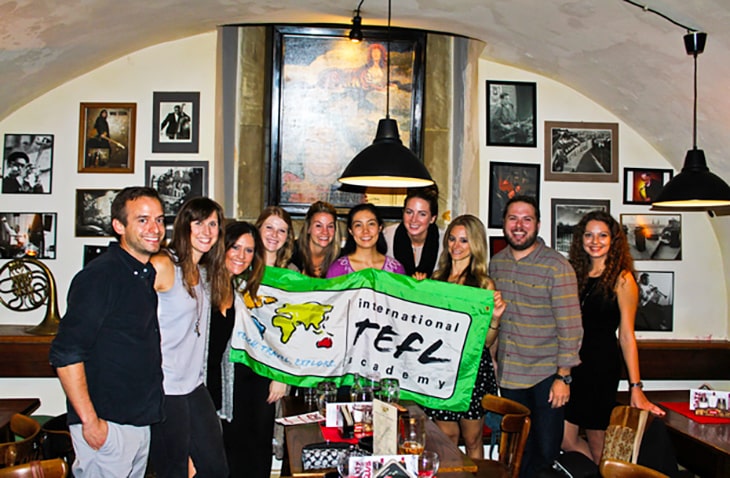
With live practice teaching sessions and guidance from experienced instructors, ITA’s certification ensures teachers feel prepared to adapt lesson plans to diverse community needs. Furthermore, ITA’s job placement support, which includes lifetime job search assistance, helps graduates find meaningful positions worldwide, often in rural areas where English proficiency can open new educational and economic pathways for local youth. ITA’s commitment to building confident, well-prepared educators makes it an excellent choice for those eager to make a difference through teaching in remote communities
Joining a teaching volunteer program with International Volunteer HQ offers immersive experiences in both Zambia and Thailand, each uniquely enriching.
In Zambia’s Rural Teaching Program, volunteers are welcomed into the village of Makumba, where they live with a local family, embracing a simpler lifestyle that fosters genuine connections. Here, volunteers support local teachers in understaffed schools, working with students aged 4 to 18. Teaching subjects range from English and math to art and physical education. Beyond the classroom, volunteers help around the homestay with daily tasks like cooking and gathering firewood, fully integrating into the village’s warm and welcoming life.
In Thailand, the Hill Tribe Support Project places volunteers in the peaceful hills around Hua Hin, supporting Karen hill tribes in preserving their rich traditions while advancing access to education. Volunteers work in local schools, engaging with children from 3 to 15, teaching English, and leading after-school activities. Staying with a local family in a remote homestay, volunteers truly live as part of the community, enjoying the breathtaking natural surroundings of Kaeng Krachan National Park.
Experience the serenity of Nepal’s Everest region by joining the Teaching in Buddhist Monasteries program. Nestled among breathtaking landscapes, this program allows volunteers to live in a monastery, teaching English and math to monks of all ages.
With an emphasis on cultural exchange, you’ll begin with a Culture Week in Kathmandu to explore Nepal’s rich heritage, taste local cuisine, and meet the warm local community. Once in the Everest region, you’ll immerse in monastic life, helping students practice English and learn essential skills. Living modestly alongside the monks offers a rare glimpse into Buddhism and the profound beauty of the region, creating a deeply fulfilling experience for volunteers drawn to cultural connection and meaningful teaching.
Teaching in rural areas with Projects Abroad offers a unique, impactful way to contribute to local education systems. Volunteers support students in English, math, IT, and even drama, encouraging them to build confidence and valuable skills.
In Ghana, volunteers in the Akuapem Hills assist local teachers and lead after-school reading clubs, helping children improve literacy and broaden their language abilities. In Tanzania and Kenya, volunteers not only teach English but also lead physical education classes, fostering teamwork and fitness through sports like football and netball. Meanwhile, in the Philippines, volunteers work in crowded classrooms, supporting local teachers by giving students extra attention in small group settings.
These placements offer a transformative experience for both students and volunteers, bridging cultural gaps and enhancing educational outcomes across diverse communities.
Teaching in rural Zambia and Zanzibar offers an enriching opportunity to empower communities through education.
In Zambia, volunteers work closely with primary school teachers in Livingstone, providing one-on-one support to help students excel in English, math, and reading. This project allows volunteers to engage in the vibrant local culture while making a lasting impact by helping students build confidence and skills.
In Zanzibar, volunteers support English literacy for both children and adults in the village of Jambiani. With tourism as a major industry, these English classes help adults access job opportunities, promoting economic development.
Teaching with IVI offers a meaningful way to impact under-resourced communities worldwide.
In Cambodia, volunteers teach English and run activities like crafts and sports, inspiring children in a vibrant village school built by volunteers. In India’s Bodhgaya, volunteers teach English, health basics, and vocational skills, supporting one of the region’s few accessible educational facilities for low-income communities.
You could also join a life-changing experience teaching English in Aubeon, Timor-Leste. Volunteers will help local children and teachers develop their language skills in a welcoming village setting. This six-month program offers basic accommodation and shared meals, with classes held at a nearby school. Embrace the challenge, connect with the community, and make a lasting impact in this remote and beautiful region, three hours from Dili.
Each placement immerses volunteers in local culture, allowing them to help create brighter futures while gaining invaluable personal growth and teaching experience.
Teaching with VolSol offers a deeply enriching experience, as volunteers bring educational support to under-resourced communities.
In Cusco, Peru, volunteering as a teacher assistant in rural kindergartens means working alongside local “promoters” (mothers trained as community educators) to nurture young children’s cognitive, motor, and social skills.
In Jaipur, India, volunteers engage with children from vulnerable backgrounds, guiding them in English, math, and sports while introducing creative, non-formal learning activities.
Teaching in rural communities with GVI offers a unique and impactful way to make a lasting difference.
In Cape Town, volunteers join programs that support women’s empowerment by providing access to education, healthcare, and income opportunities, helping to break cycles of poverty. In Siem Reap, teaching English to Buddhist monks and local children expands their future opportunities and strengthens the community’s resilience.
A Pathway to Opportunity
Education transforms lives, especially in underserved communities where learning opens doors from poverty to opportunity. Rural education programs provide crucial skills, from literacy to vocational training, empowering young people to uplift their communities. Teachers in these programs witness firsthand how education fosters confidence and hope, inspiring students to believe in their potential.
Improving Literacy in Rural Communities
One core goal of rural education is improving literacy, which becomes a gateway to knowledge and growth. In areas without books or libraries, teachers help students develop essential reading and writing skills, nurturing independence and curiosity.
Every lesson becomes an investment in brighter futures, as students start to envision lives beyond their current limitations.
Building Community-Led Education Projects
Many rural education initiatives are part of larger, community-led outreach efforts designed to create sustainable, lasting change. By focusing on local needs, these projects ensure that education aligns with the cultural and economic realities of each region, strengthening communities from within. Teachers involved in these initiatives join a collective mission to build capacity and provide meaningful, relevant education.
Empowering Youth through Education
Teaching is more than sharing knowledge—it’s a journey to empowerment. Educators in rural areas encourage students to dream bigger, fostering resilience, ambition, and self-worth.
These empowered youth, in turn, inspire peers, support families, and contribute to economic growth, creating a positive cycle of change within their communities.
Making a Difference in Rural Education
Teaching in rural areas is more than a career—it’s a commitment to uplifting lives, strengthening communities, and fostering change where it’s needed most. When you choose to share your knowledge in these settings, you are investing in a brighter, more equitable future. Through education, we can empower individuals, bridge social divides, and build a world where every child, regardless of their location, has the chance to reach their full potential.
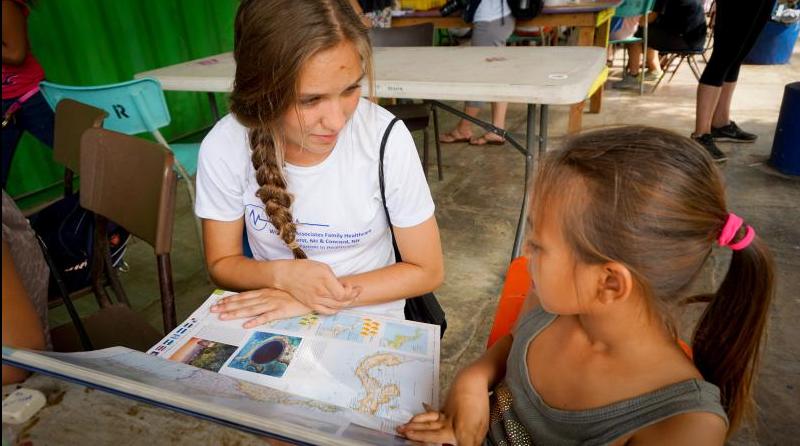
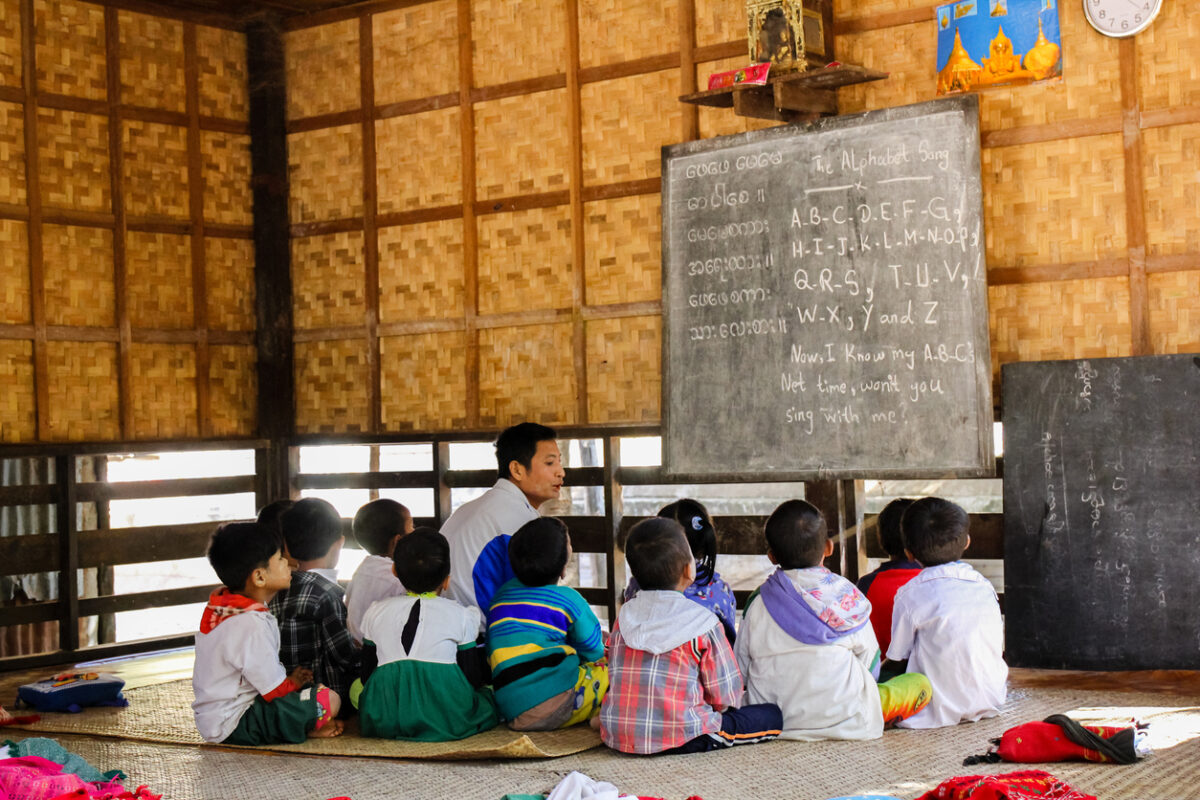













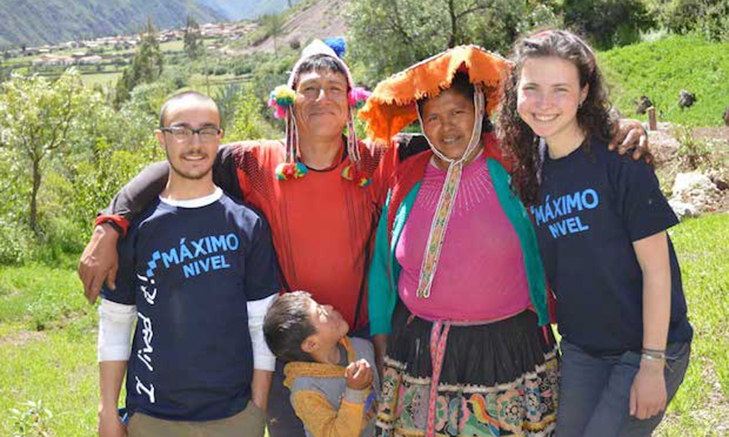



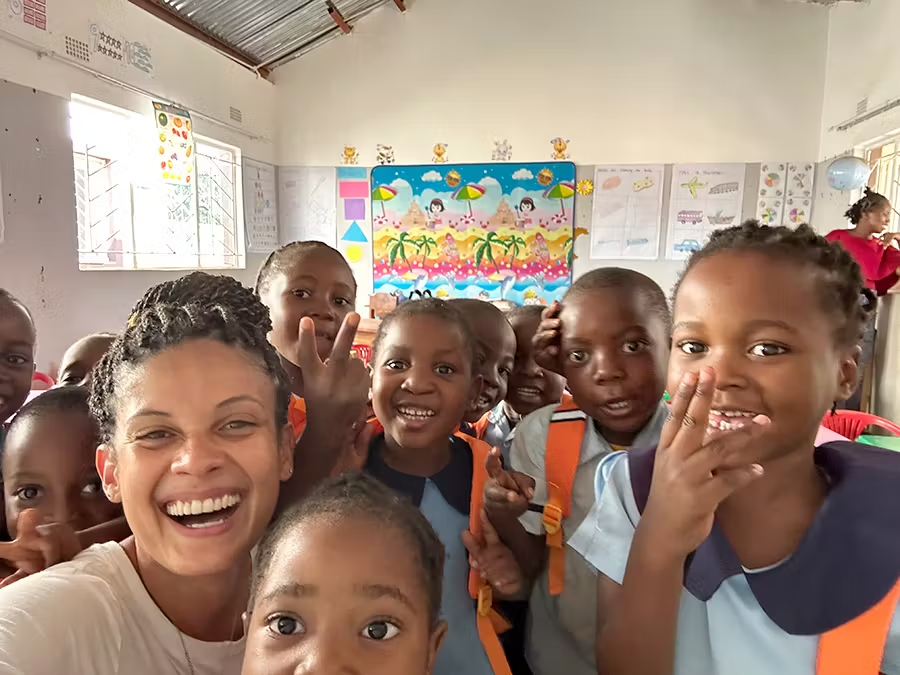

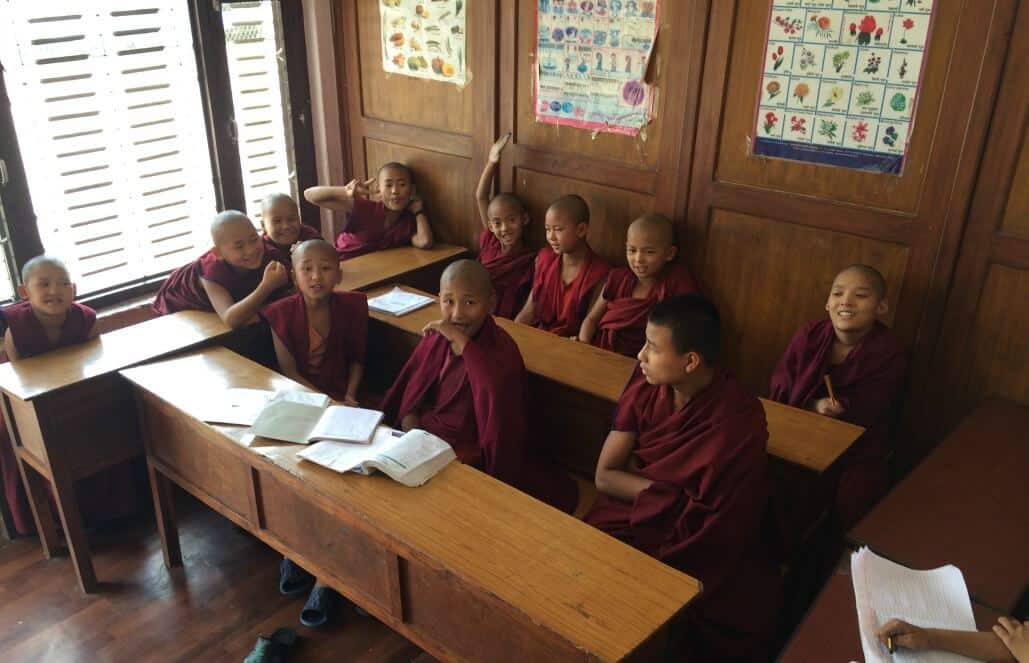

![projects-abroad-teaching-volunteer-giving-lesson-in-ghana-product-5e17b178809e3.[1090] why teach in a rural school Teaching in rural areas Education in underserved communities Rural education programs Make a difference through teaching Impactful teaching opportunities Volunteer teaching abroad Improving literacy in rural communities Education for social change Empowering rural youth through education Building brighter futures through education Teaching English in rural areas Educational outreach initiatives Community-led education projects Teaching as a tool for empowerment](https://www.volunteerforever.com/wp-content/uploads/2024/10/projects-abroad-teaching-volunteer-giving-lesson-in-ghana-product-5e17b178809e3.1090.jpeg)
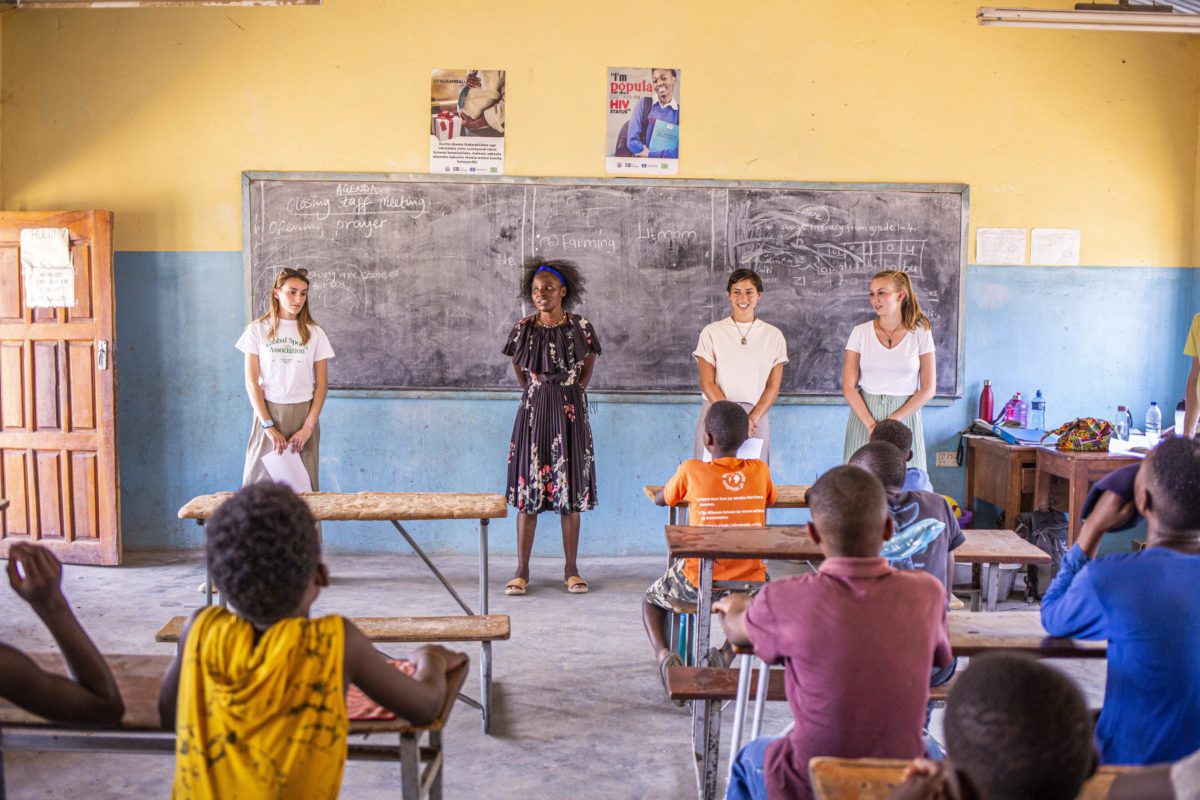
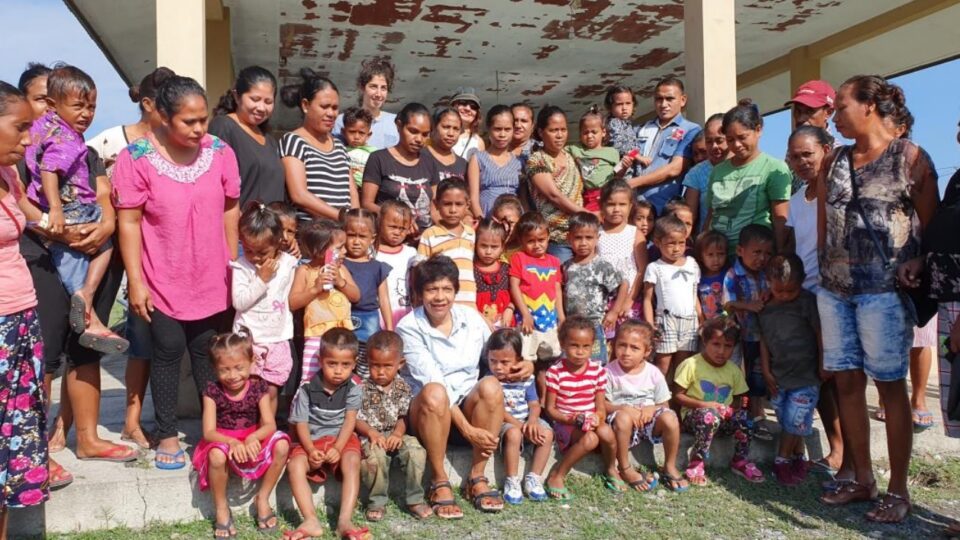
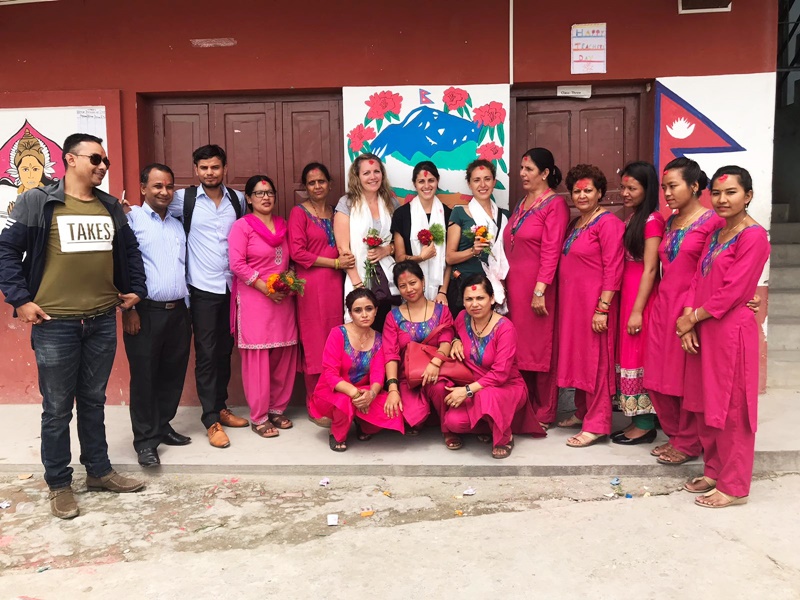
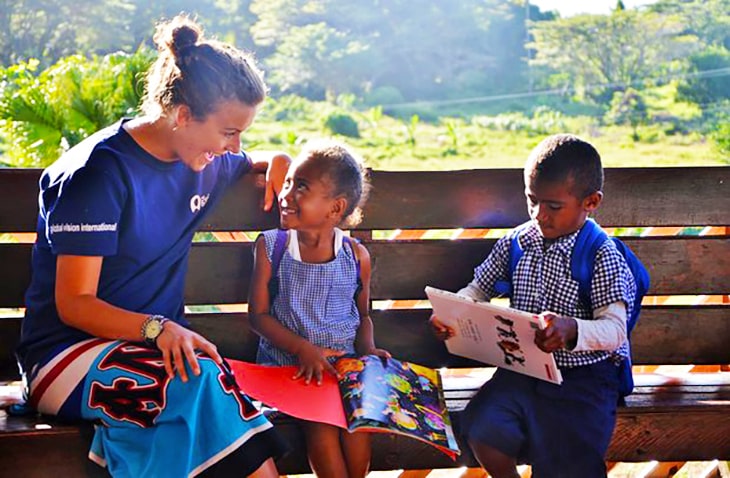
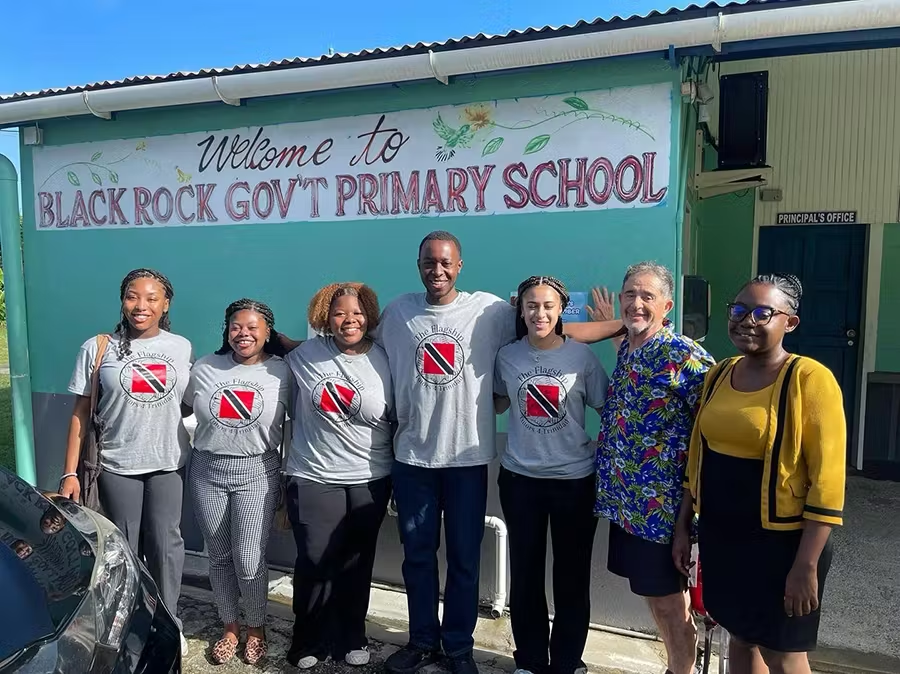
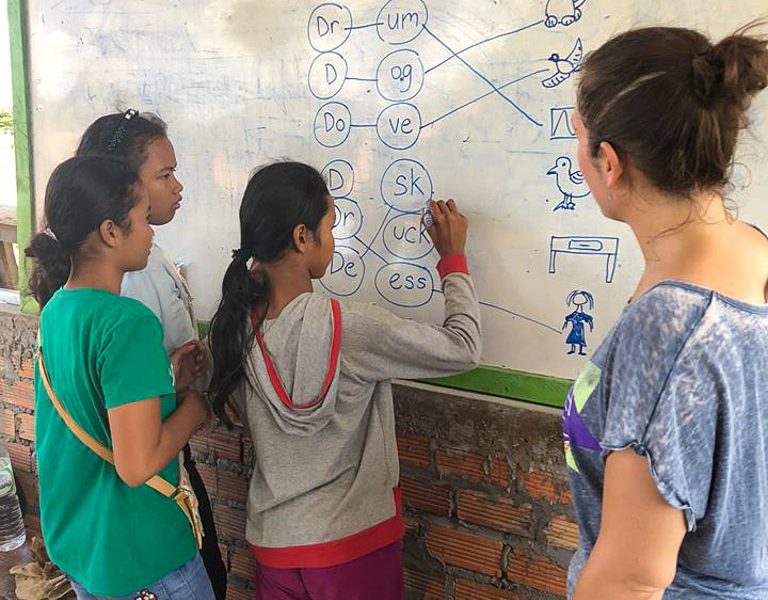






Munira Maricar · Travel Writer
With an international living background spanning Singapore, Qatar, Japan, and Mexico, Munira enjoys sharing insights on immersive travel while emphasizing the vital role of cultural respect and ethical engagement. Her extensive experience offers a unique perspective that inspires others to explore the world through service, ensuring that every journey respects and contributes positively to local traditions and communities.